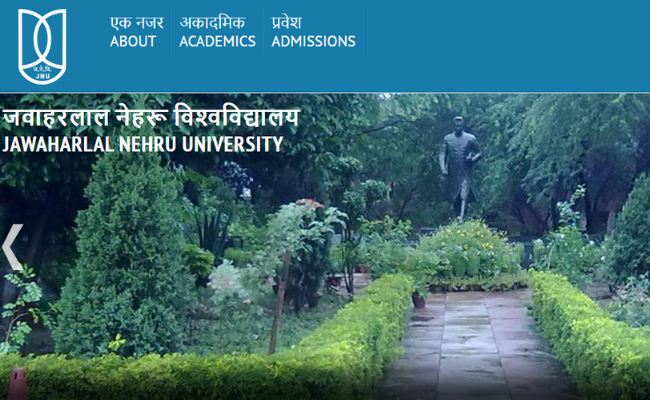Jawaharlal Nehru University (JNU) students from various departments, including the School of International Studies, the School of Social Sciences, and others, boycotted the examinations on Thursday over the ongoing hostel fee hike issue.
The JNU Students’ Union said that by boycotting examinations, students of the university had shown “exemplary unity in the face of intimidation, violence and a barrage of threats in the form of circulars” released by the administration.
However, students appeared for their papers in the School of Sanskrit and Indic Studies (SSIS). Professor Hari Ram Mishra of the School of Sanskrit and Indic Studies said the full strength of students was seen who appeared for exams in the 10 am to 1 pm shift.
Sources informed exams were also held in the School of Engineering and the Atal Bihari Vajpayee School of Management and Entrepreneurship. There was no instant response from the varsity administration.
However, JNU Vice-Chancellor M Jagadesh Kumar had said earlier that the exams would be happening as per schedule even though students boycotted it in protest over the hostel fee hike. He said the varsity administration was open for discussion and interests of bonafide students were a top priority.
“The university is committed to help the bona fide students who wish to write their exams and complete their academic requirements. The interest of bonafide students is a top priority to the university,” he said.
In the meantime, the varsity had a meeting with the office-bearers of the International Students’ Association of JNU, who had shared the problems faced by the international students as their visa validity is going to be expired.
They were assured that their situation would be considered with care. “In order to facilitate the evaluation of their courses, it’s only appropriate that an alternative evaluation process needs to be adopted,” the administration of the varsity had said on Wednesday.
M Jagadesh Kumar said the university had always shown encouragement for discussion and would continue to do it.
In a bid to end the deadlock, the JNU administration also conducted several meetings with the student representatives throughout the day and stated that the meetings were a “significant step towards normalising the situation.”
“The JNU administration reiterated that students and their representatives are always welcome to have a dialogue and discussion. The VC ended the meeting with an appeal to call off the strike in the interest of thousands of students,” the administration declared, after a meeting with presidential candidates who had contested in the JNUSU elections this year.
Earlier in the day, Vice-Chancellor M. Jagadesh Kumar also met eighteen hostel presidents to discuss the matter and “explained about the revised hostel manual,” according to the university administration.
While the administration continued to say that it was a step towards “normalising” the situation, students’ representatives said that “nothing conclusive” emerged from the meeting.
“First they tried to convince us how the service and utility charges are justified. Then the hostel presidents demanded a rollback of the new hostel manual and a fresh IHA meeting to be held in a democratic manner. We said that the students will not pay a single paisa. The VC did not reply to our demands,” the hostel presidents said in a statement.
The student representatives also said that the VC “wanted the Yamuna hostel (which is fully privatized) model to be applied to all the hostels.
“We rejected such proposals. They even justified the 10% annual hike. Nothing conclusive came out from the administration side. When the hostel presidents started to ask the VC tough questions, he concluded the meeting and ran away,” the statement read.
Meanwhile, the Human Resource Development Ministry has called for a “foolproof” system to prevent recurrence of similar instances like the ongoing stand-off between the administration and students, according to officials.
The Ministry has also asked the university to consider and give a relaxation of two weeks to make up for the lost academic period, said officials.
Apart from the hostel fee hike, the deadline for students to return to the hostels and the dress code were the major sticking points against which the university students were protesting.
On Wednesday, the JNU administration decided to roll back the hostel fee hike partially “only for students below the poverty line category” and removed the provisions for curfew timings and dress code from the draft. The decisions, including partial roll back of the fee hike, were taken at university’s Executive Council (EC) meet.
However, no rules were changed in the hostel fee structure for BPL students who avail scholarships and for non-BPL students.
Come back for more regular updates on JNU.
